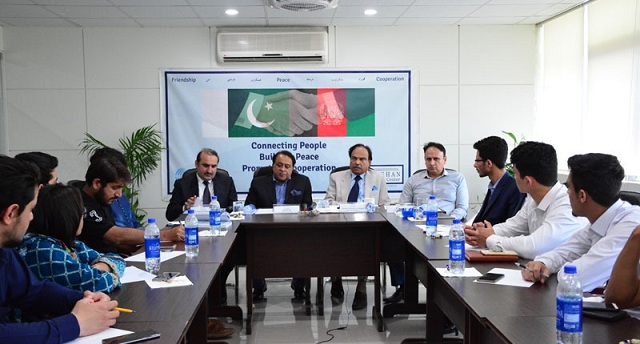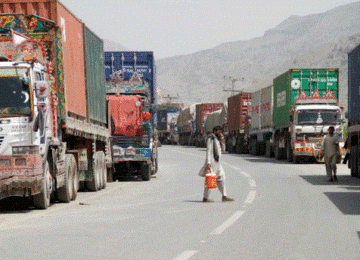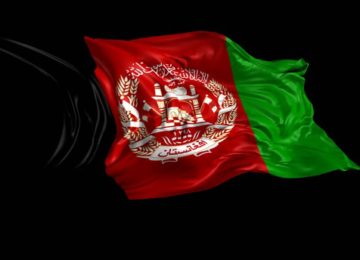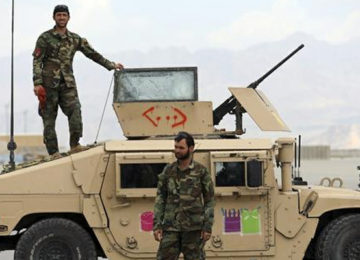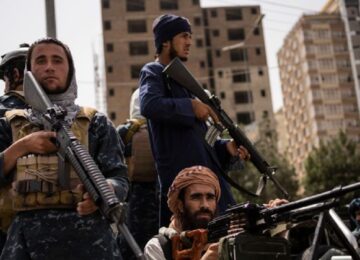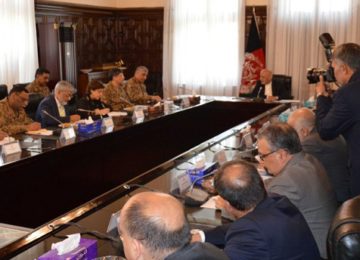Elections 2018 in Pakistan and Afghanistan are being viewed as critical in the history of both countries. Elections in Pakistan are expected to be held on 25-26 of July this year while in Afghanistan parliamentary elections are scheduled to be held on October 20, 2018, after undergoing a delay of almost two years. This was shared by the former Federal Secretary Election Commission of Pakistan (ECP), Mr. Kanwar Dilshad and Mr. Zardasht Shams, Afghan Deputy Head of Mission in Islamabad, who were invited as Chief Guest Speaker and Guest of Honor respectively at the Center for Research and Security Studies’ (CRSS) 12th Pak-Afghan Youth Dialogue on May 09, 2018, on the theme of ‘Electoral System and Upcoming Elections in Pakistan and Afghanistan’. Senior Journalist Sarfraz Raja from GEO and Jung Group was also invited as guest speaker to present the media perspective.
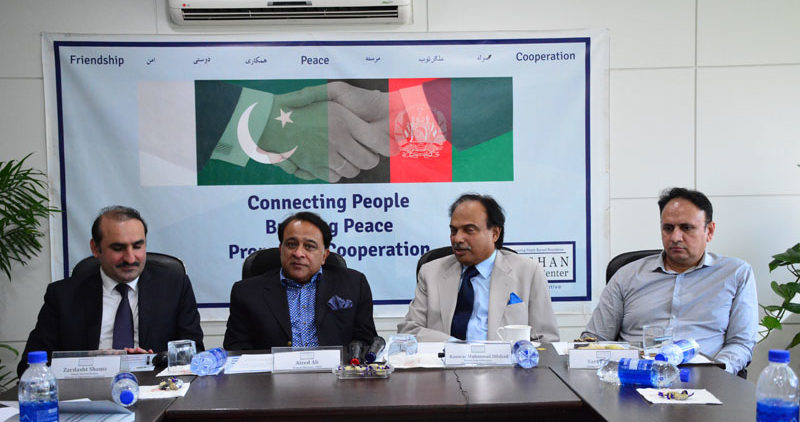
CRSS Project Director Mr. Aized Ali welcomed the Chief Guests and the participants who included young Afghans and Pakistanis belonging to different regions of both countries and enrolled in undergraduate and graduate programs of Pakistani universities. He apprised them of the objectives of CRSS’ ongoing Pakistan-Afghanistan Track 1.5/II initiative Beyond Boundaries since October 2015 and the Afghan Studies Center which started as an off-shoot of the project to bring the youth of both countries together and provide them with a platform. He told the participants that the theme under discussion was very relevant in the view of upcoming elections in both Pakistan and Afghanistan.
Mr. Dilshad told the participants that both Election Commissions of Pakistan and Afghanistan over the years enjoyed cordial relations with each other irrespective of the tensions that remained at the state level. The ECP official further told the participants that, in fact, during the forming of Afghan Election Commission in 2002, the Election Commission of Pakistan had provided all the possible technical support it could.
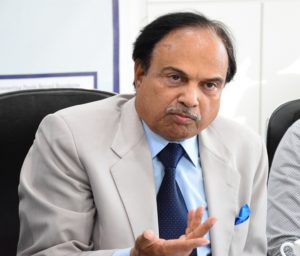
He then proposed a few electoral reforms to address the lacunas in Pakistan’s electoral process, including reducing the tenure of the parliament to four years from the existing five years; this view, he stated, was also seconded and reinforced by the leader of the opposition in the National Assembly at many forums. He also proposed abolishing the quota for women and minority seats in the parliament. Instead, he stated that it should be mandatory for every contesting party to allocate 10% of the seats to women and minority contestants. He further proposed that political leaders should be allowed to function as heads of political parties for only two consecutive terms to ensure that dynastic politics does not nurture, providing the chance to the wide cross-section of the political party members to rise to the top leadership cadres.
Giving the example of Bangladesh’s electoral process, he stated that as practiced there, Pakistan also needs to adopt the option of ‘None of the above’ for voters on the ballot paper in case the voter does not like any of the candidates listed. This was suggested to the government by the ECP in the last elections but government did not take any measures in this regard. The advantage of adding this option, he stated, was that if more than 30% mark “None of the above”, then election would be held again in that particular constituency. Doing so would also disqualify the candidate for re-election and provide the parliamentary party to choose a more suitable replacement candidate.
Senior Journalist Mr. Sarfraz Raja, shedding light on the media’s role in elections, said the responsibility of the media in influencing the voter’s preferences is another aspect worth attention in the upcoming elections in both countries. He said that the 2013 elections in Pakistan witnessed intense allegations of rigging by different parties, particularly on media TV channels. Media certainly has a vital role in impacting the voter’s decision by way of their reporting style, which he said is a also way of rigging. Election rigging is one the most misunderstood phenomenon in both countries. It is not done only on the election day, but can be done in many ways through the media before the election which affect voters’ preferences, such as through airing speeches of only selected leaders, biased reporting and projecting the activities of a particular party. We need efficient managers in electoral process, not judges, he said; as judges should have none to minimal role in the whole process.
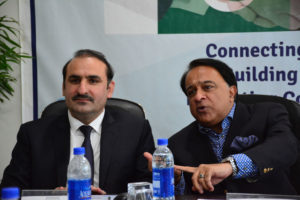
Mr. Aized Ali then gave a brief presentation on the electoral system of Afghanistan. As compared to Pakistan’s Westminister Democracy system, Afghanistan has a presidential form of government. Elections in Afghanistan are held on the “Two-Round System” – which include the first round of parliamentary elections and a second round for presidential elections. Unlike Pakistan, Afghanistan’s parliamentary elections are based on a non-party system contested between Independents, though at times these independents can have party associations. Women are allocated 68 seats out of a total of 249 seats for the Afghan Wolesi Jirga, forming 27% of the members of parliament.
In the second round, the presidential elections are held which are directly contested between political aspirants contesting to become the President, he added. Moreover, he also shared the happenings of last Afghan Presidential Elections held on April 5, 2014; there were 27 candidates, out of which there was a close tie between the two major contestants – Ashraf Ghani and Dr. Abdullah Abdullah, resulting in Dr. Abdullah refusing to accept the election results and asking for re-elections. Consequently, the Constitution of Afghanistan was amended to avoid re-elections and the post of CEO was created which saw the formation of the National Unity Government; through which Ashraf Ghani assumed the Office of the President while Dr. Abdullah Abdullah became the first CEO of Afghanistan.
Mr. Zardasht Shams, at the outset, stated “It is a great pleasure for me to see so many young Pakistani and Afghan students sitting here and to be interacting with you.” He greatly appreciated and commended the efforts of CRSS through its Executive Director Mr. Imtiaz Gul and Project Director Mr. Aized Ali, for continuing to work on the successful Track 1.5 and II initiative Beyond Boundaries. He further added that this forum of Pak-Afghan Youth Dialogue series provided by CRSS is again a significant and timely initiative to bring the youth of the two countries together, something he stated was primarily the role of the embassies and the government to facilitate better people to people contact.
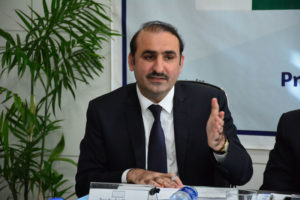
He told the participants that Afghanistan is new to democracy. Historically, the country has been ruled by dynasties, monarchies, then the Soviets came and afterwards Mujahideen followed. The first Afghan presidential election was held in 2004 which was followed by elections in 2009. In 2014, when the next elections were held, despite the immense security threats by the Taliban and hurdles in logistics, he stated, the high turn-out of voters, about 60%, showed the resilience and zeal of the Afghan people and the desire to have democracy continue as the only system.
Regarding the upcoming 2018 elections in Afghanistan, he said, while there may be many challenges, including the heavy expenses of elections for the 12 million registered voters of Afghanistan, as the saying goes ‘where there is a will, there is way,’ the leadership is committed, the people are hopeful and Afghanistan is looking to embark on a new future.
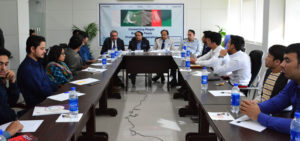
During the Q&A session, the participants raised questions regarding the issue of overseas votes not being allowed in Pakistan. In response, Mr. Dilshad stated that the Supreme Court has finally allowed this provision. However, as every country is governed by different laws and Pakistan has missions in 105 countries, the process of catering to about five to six million overseas voters will take time, but is expected to be in place for the next elections in 2023.
An Afghan participant asked Mr. Shams that the Pakistani government after one attack on the Army Public School in Peshawar came up with the National Action Plan which was implemented by the Pakistani military; as there are such frequent attacks in Afghanistan, why does the Afghan Government and military establishment come up with a national action plan. In response, Zardasht Shams stated that the question was valid but Afghanistan is in a state of war. The government, parliament and military are in cognizant of this issue but as mentioned in your question there are so many attacks, the country is faced with many challenges and this will take time.
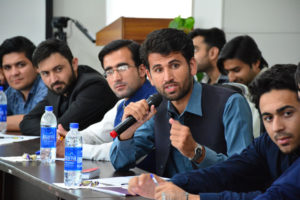
Another question from the participants posed to Mr. Shams was whether the Taliban will become part of the government and election process in the upcoming elections in Afghanistan. To this, he stated that if the Taliban give up resistance, surrender arms, stop killing innocent people of Afghanistan, and be willing to adopt the legal and constitutional process of joining the government, they would be allowed to contest elections as any independent candidates. Once elected, they can be part of the government.
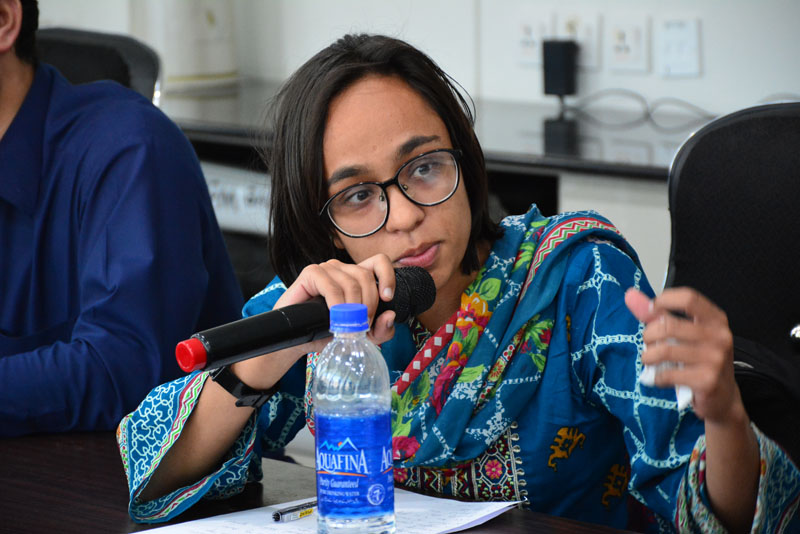
In response to queries about the future of Pak-Afghan bilateral relations from the participants, Mr. Shams seemed very optimistic due to Pakistan’s Prime Minister Abbasi visit to Kabul last month followed by resumption of state-to-state level dialogue between the two countries. He also shared with the participants the news about a fifteen-member high level delegation including four Deputy Ministers currently visiting Pakistan on the resumption of trade talks. “In the coming weeks or months, you will hear more positive news coming out”, concluding on a positive note.
The session concluded with Mr. Aized Ali nominating Ms. Momna Khan from Pakistan – as one of CRSS’ Pak-Afghan Youth Ambassadors for 2018 and presenting her a shield. On behalf of CRSS, he then presented honorary shields to the distinguished guests for their valuable participation.
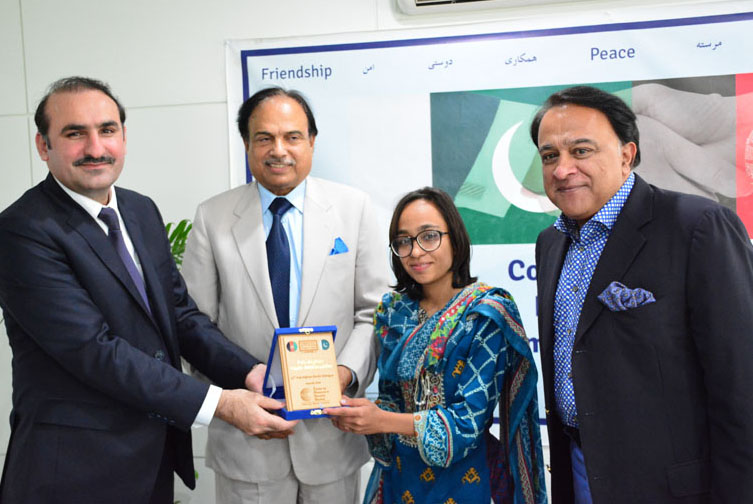
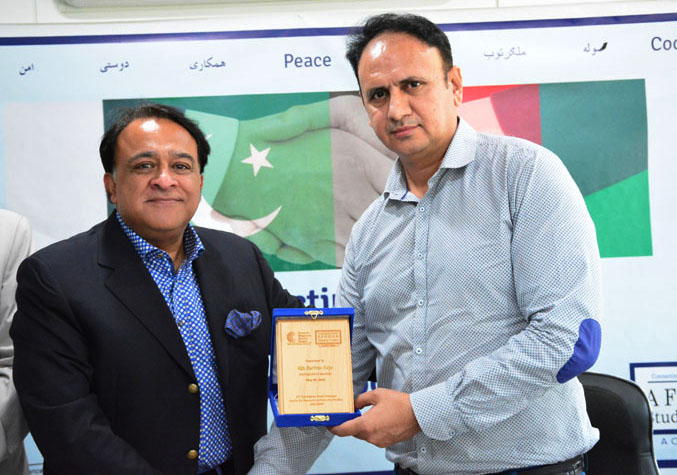
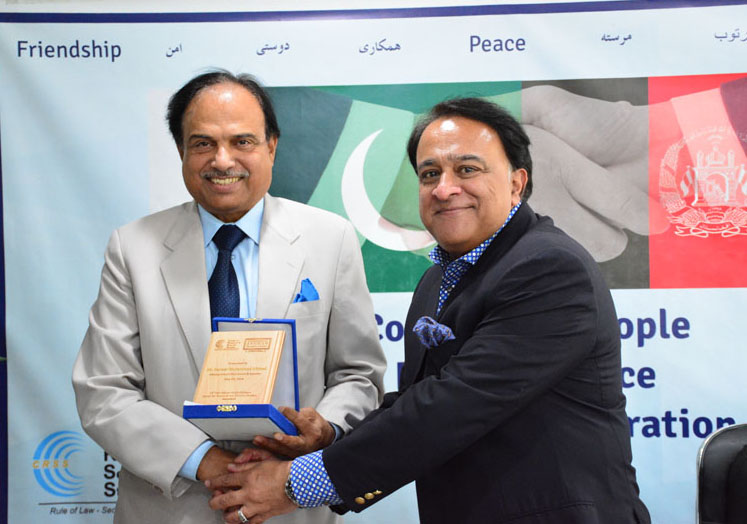
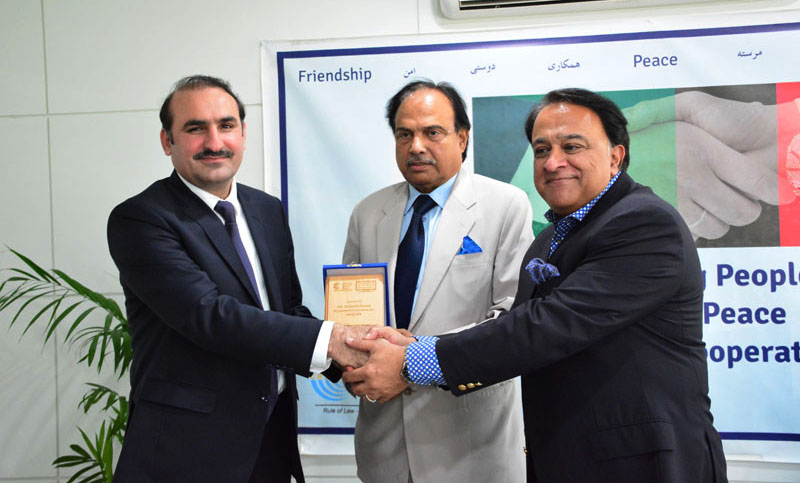
CRSS, under its Afghan Studies Center initiative, has reached out to over 360 youth over the course of the last year covering various themes of significance concerning both countries. This was the 12th youth dialogue in its ongoing monthly dialogue series.
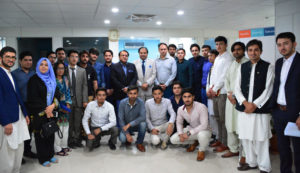
© Center for Research and Security Studies (CRSS) and Afghan Studies Center (ASC), Islamabad.



